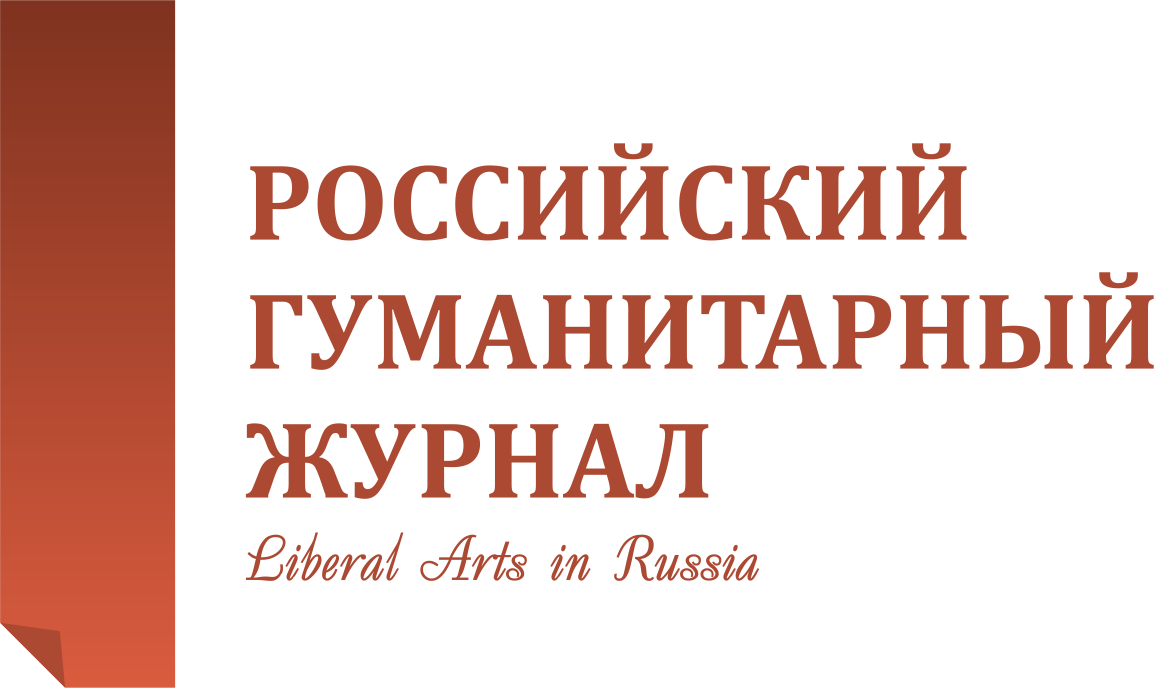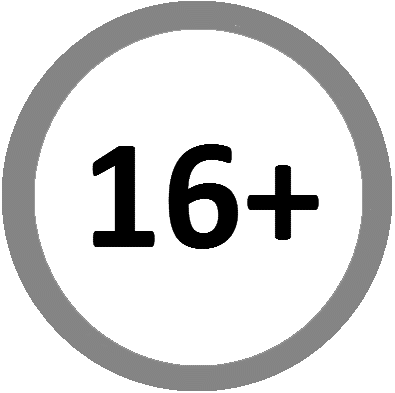Комплементарность межличностных отношений и социальный интеллект студентов
Российский гуманитарный журнал. 2013. Том 2. №5. С. 458-479.
Скачать полный текст (Русский) Email: newpharo@yandex.ruРезюме
В статье описываются результаты исследования социального интеллекта и комплементарности межличностных отношений между студентами и преподавателями. Предложен оригинальный подход определения социального интеллекта на материале оценки различных стратегий поведения в конфликтных ситуациях. Для определения эффективности ответов теста было предложено отталкиваться от системы групповых оценок, представлявших собой вектор медианных значений по всем пунктам опросника социального интеллекта. Результаты измерения социального интеллекта студентов сопоставляются с показателями комплементарности взаимоотношений между студентами и преподавателями. Получены значимые положительные взаимосвязи между уровнем социального интеллекта студентов и комплементарностью по аффилиации между студентами и преподавателями по опроснику Кислера.
Ключевые слова
- • социальный интеллект
- • межличностные отношения
- • комплементарность
- • social intelligence
- • interpersonal relations
- • complementarity
Литература
- Практический интеллект / Под ред. Р. Дж. Стернберга СПб: Питер, 2002. 272 с.
- Белова С. С. В психометрических поисках социального интеллекта // Социальный и эмоциональный интеллект: от процессов к измерениям / Под ред. Д. В. Люсина, Д. В. Ушакова. М.: Институт психологии РАН, 2009. С. 187–215.
- Лунева О. В. История исследования социального интеллекта // Человеческий потенциал. 2008. №4. С. 177–182.
- Seidel K. Social intelligence and auditory intelligence – useful constructs?: dissertation zur erlangung des akademischen grades doktor der philosophie. Magdeburg, 2007. URL: http://diglib.uni-magdeburg.de/Disserta tionen/2007/kriseidel.pdf
- Weis S. Theory and measurement of social intelligence as a cognitive performance construct: dissertation zur erlangung des akademischen grades doktor der philosophie. Magdeburg, 2008. URL: http://diglib.uni-magdeburg.deDissertationen/2008/suzweis.pdf
- Landy F. J. The long, frustrating and fruitless search for social intelligence: a cautionary tale // A critique of emotional intelligence: what are the problems and how can they be fixed? / Ed. K. R. Murphy. New Jersey: Lawrence Erlbaum Associates, 2006. Pp. 81–123.
- Thorndike E. L. Intelligence and its use // Harper’s Magazine. 1920. V. 140. P. 227–235.
- Hunt T. The measurement of social intelligence // Journal of Applied Psychology. 1928. Vol. 12(3). Pp. 317–334.
- Vernon P. E. Some characteristics of the good judge of personality // Journal of Social Psychology. 1933. Vol. 4. Pp. 42–57.
- Kihlstrom J. F., Cantor N. Social intelligence // Cambridge handbook of intelligence / Ed. R. Sternberg, S. B. Kaufman. Cambridge: Cambridge University Press, 2011. Pp. 564–580.
- Kihlstrom J. F., Cantor N. Social intelligence // Handbook of intelligence / Ed. R. J. Sternberg. Cambridge: Cambridge University Press, 2000. Pp. 359–379.
- O’Sullivan M., Guilford J. P. Six factors of behavioral cognition: understanding other people // Journal of educational measurement. 1975. Vol. 67. Pp. 255–271.
- Лунева О. В. История исследования социального интеллекта // Человеческий потенциал. 2009. №1. С. 223–229.
- Лунева О. В. Социальный интеллект: история изучения и основные модели. М.: Изд-во Моск. гуманитарного ун-та, 2009. 124 с.
- Cantor N., Kihlstrom J. F. Personality and social intelligence. Englewood Cliffs, NJ: Prentice-Hall, 1987. 200 p.
- Weis S., Süß H. M. Social intelligence – a review and critical discussion of measurement concepts // An international handbook of emotional intelligence / Ed. R. Schulze, R. D. Roberts. Göttingen: Hogrefe. 2005. Pp. 203–230.
- Weis S., Süß H. M. Reviving the search for social intelligence // Personality and individual differences. 2007. Vol. 42. Pp. 3–14.
- Sternberg R. J. The triarchic mind: a new theory of human intelligence. New York: Viking, 1986. 354 pp.
- Albrecht K. Social intelligence: the new science of success. San Francisco: Jossey-Bass, 2006. 289 pp.
- Goleman D. Social intelligence: the new science of social relationships. New York: Bantam Books, 2006. 413 pp.
- Bar-On R., Maree J. G. In search of emotional-social giftedness: a potentially viable and valuable concept // International handbook on giftedness / Ed. Shavinina. Springer Science+Business Media B. V., 2009. Pp. 559–570.
- Ang S., Dyne V. L. Conceptualization of cultural intelligence: definition, distinctiveness and nomological network // Handbook of cultural intelligence: theory, measurement, and applications / Ed. S. Ang, L. Van Dyne. Armonk-New York-London: M.E. Sharpe, Inc., 2008. Pp. 3–15.
- Ascalon D. J., Schleicher D. J., Born M. P. Cross-cultural social intelligence: an assessment for employees working in cross-national contexts // Purdue CIBER Working Papers. Paper 42, 2006. URL: http://docs.lib.purdue. edu/ciberwp/42
- Dyne V. L., Ang S., Koch C. K. Cultural intelligence: measurement and scale development // Contemporary leadership and intercultural competence: exploring the cross-cultural dynamics within organization / Ed. M. A. Moodian. Thousand Oaks: Sage Publications, 2009. P. 233–254
- Wawra D. Social intelligence: the key to intercultural communication // European Journal of English Studies. 2009. Vol. 13. No. 2. Pp. 163–177.
- Знаков В. В. Макиавеллизм, манипулятивное поведение и взаимопонимание в межличностном общении // Вопросы психологии. 2002. №6. С. 45–54.
- Ларина А. Д. Подходы, установки и перспективы в исследовании макиавеллизма // Вопросы психологии. 2010. №3. С. 75–83.
- Katagiri Y. “Robots with social intelligence” // IPSJ Magazine. Vol. 44. No. 12. 2003. Pp. 1233–1238.
- Green W., de Reuter B. The design and evaluation of interactive systems with perceived social intelligence: five challenges, 2008. URL: http:/www.boris.borderit.com/docs/SID08-Green.pdf
- Веккер Л. М. Психика и реальность: единая теория психических процессов. М.: Смысл: Per Se, 2000. 685 с.
- Абульханова-Славская К. А. Социальное мышление личности: проблемы и стратегии исследования // Психологический журнал. 1994. №4. С. 39–55.
- Куницына В. Н., Казаринова Н. В., Погольша В. М. Межличностное общение. Учебник для вузов. СПб: Питер, 2001. 544 с.
- Южанинова А. Л. К проблеме диагностики социального интеллекта личности // Проблемы оценивания в психологии: межвуз. науч. сб. / Под ред. Л. П. Доблаева. Саратов: Изд-во Саратов. ун-та, 1984. С. 63–67.
- Лабунская В. А. Не язык тела, а язык души! Психология невербального выражения личности. Ростов н/Д.: Феникс, 2009. 344 c.
- Barker R. G. Ecological psychology: concepts and methods for studying the environment of human behavior. Stanford, California: Stanford University Press, 1968. 242 pp.
- Хекхаузен Х. Мотивация и деятельность. СПб: Питер; М: Смысл, 2003. 860 c.
- Mischel W. Toward a cognitive social learning reconceptualization of personality // Psychological Review. 1973. Vol. 80. Pp. 252–283.
- Mischel W. Toward an integrative science of the person // Annual Review of Psychology. 2004. Vol. 55. Pp. 1–22.
- Ford M. Intelligence and personality // International handbook of personality and intelligence / Ed. D. H. Sakloеfske, M. Zeidner. New York: Plenum Press, 1995. Pp. 125–143.
- Кашапов М. М., Башкин М. В. Психология конфликтной компетентности: учеб. пособие. Ярославль: ЯрГУ, 2010. 128 c.
- de Meijer L. A. L. and Born M. Ph. The situational judgment test: advantages and disadvantages // Online Read ings in Testing and Assessment, International Test Commission. Erasmus University Rotterdam. 2009. URL: http://www.intestcom.org/publications/Orta/the_situational_judgment_test.php
- Stagl C. K. The construct validity of a situational judgment test in a maximum performance context: a dissertation submitted in partial fulfillment of the requirements for the degree of Doctor of Philosophy. Orlando, Florida. 2006. URL: http://etd.fcla.edu/CF/CFE0001309/Stagl_Kevin_C_200608_PhD.pdf
- Weekly J. A., Ployhart R. E. An introduction to situational judgment testing // Situational judgment tests: theory, method and application / Ed. J. A. Weekly, R. E. Ployhart. New Jersey: Lawrence Erlbaum Associates, 2006. Pp. 1–12.
- Щербаков С. В. Социальный интеллект и профессиональная компетентность инженерно-технических работников: монография. Уфа: РИЦ БашГУ, 2011. 170 с.
- Walker R. E., Foley J. M. Social intelligence: its history and measurement // Psychological Reports. 1973. Vol. 33. Pp. 839–864.
- Bailey R. Playing social chess: children’s play and social intelligence // Journal of international research and development. 2002. Vol. 22, No. 2. Pp. 163–173.
- Емельянов Ю. Н. Активное социально-психологическое обучение. Л.: Изд-во ЛГУ, 1985. 167 с.
- Белицкая А. Г. Социальная компетентность личности // Субъект и социальная компетентность личности / Под ред. А. В. Брушлинского. М.: Институт психологии РАН, 1995. С. 24–108.
- Ушаков Д. В. Социальный интеллект как вид интеллекта // Социальный интеллект: теория, измерение, исследование / Под ред. Д. В. Люсина, Д. В. Ушакова. М.: Институт психологии РАН, 2004. С. 11–28.
- Федорова Е. А. Социальный интеллект как фактор формирования отношения к социально-значимым объектам у представителей различных этнических групп: дис. … канд. психол. наук. Ярославль, 2009. 306 c.
- Мясищев В. Н. Психология отношений / Под ред. А. А. Бодалева. М.: практической психологии, 1995. 356 с.
- Ананьев Б. Г. Психология и проблемы человекознания / Под ред. А. А. Бодалева. М.: Институт практической психологии, 1996. 384 с.
- Журавлев А. Л., Соснин В. А., Красников М. А. Социальная психология: учебное пособие. М.: ФОРУМ: ИНФА-М, 2006. 416 с.
- Scarvalone P., Fox M., Safran J. D. Interpersonal schemas: clinical theory, research and implications // Interpersonal cognition / Ed. M. W. Baldwin. New York-London: Guilford Press, 2005. Pp. 359–387.
- Кроник А. А., Кроник Е. А. Психология человеческих отношений. Дубна: Феникс: Когито-Центр, 1988. 214 с.
- Leary T. Interpersonal diagnosis of personality: a functional theory and methodology for personality evaluation. New York: Ronald Press Company, 1957. 518 pp.
- Locke K. D. Circumplex scales of interpersonal values: reliability, validity, and applicability to interpersonal problems and personality disorders // Journal of Personality Assessment. 2000. Vol. 75. Pp. 249–267.
- Locke K. D. Circumplex measures of interpersonal constructs // Handbook of interpersonal psychology: theory, research, assesment and therapeutic interventions / Ed. by L. W. Horowitz, S. Strack. Hoboken, New Jersey: Wiley, 2011. Pp. 313–324.
- Pincus A. L., Ansell E. B. Interpersonal theory of personality // Vol. 5. Handbook of psychology: personality and social psychology / Ed. N. Millon, M. Lerner. Hoboken, NJ: Wiley, 2003. Pp. 209–229.
- Carson R. C. Interpersonal behavior: history and practice of personality theory. Chicago: Adline Pub. Co., 1969. 306 pp.
- Gurtman M. W. Exploring personality with the interpersonal circumplex // Social and personality psychology compass. 2009. Vol. 3.
- Sullivan H. S. The illusion of personal individuality // Psychiatry: Journal for the study of interpersonal processes. 1950. Vol. 13. Pp. 317–332.
- Kiesler D. J. The 1982 interpersonal circle: a taxonomy for complementarity in human transactions // Psychological Review. 1983. Vol. 90. Pp. 185–214.
- Kiesler D. J., Schmidt J. A. The impact message inventory ‒ circumplex (IMI-C) Manual. 2006. URL: http://www.safranlab.net/uploads/7/6/4/6/7646935/impact_message_inventory_manual.pdf
- Orford J. The rules of interpersonal complementarity: does hostility beget hostility and dominance, submission? // Psychological Review. 1986. Vol. 93. Pp. 365–377.
- Dyer D. C., Horowitz L. W. When do opposites attract? Interpersonal complementarity versus similarity // Journal of personality and social psychology. 1997. Vol. 72. Pp. 592–603.
- Shechtman N., Horowitz L. M. Interpersonal and noninterpersonal interactions, interpersonal motive, and the effect of frustrated motives // Personality and Social Psychology Bulletin. 2006. Vol. 32. Pp. 1126–1139.
- Yaughn E., Nowicki S. Jr. Close relationships and complementary interpersonal styles among men and women // Journal of Social Psychology. 1999. Vol. 139. Pp. 473–478.
- Markey P. M., Markey C. N. Romantic ideas, romantic obtainment, and relationship experiences: the complementarity of interpersonal traits among romantic partners // Journal of Social and Personal Relationships. 2007. Vol. 33. Pp. 517–533.
- Sadler P., Ethier N., Woody W. Interpersonal complementarity // Handbook of interpersonal psychology: theory, research, assessment and therapeutic interventions / Ed. L. W. Horowitz, S. Strack. Hoboken, New Jersey: Wiley, 2011. Pp. 123–143.
- Tracey T. J. An examination of the complementarity of interpersonal behavior // Journal of personality and social psychology. 1997. V. 67. P. 864–878.
- Tracey T. J. Levels of interpersonal complementarity: a simplex representation // Personality and social psychology bulletin. 2004. Vol. 30. Pp. 1211-1225.
- Moscowitz D. S., Ho M.-H. R., Turkotte-Tremblay A.-M. Contextual influences on interpersonal complementarity // Personality and Social Psychology Bulletin. 2007. Vol. 33. Pp. 1051–1063.


